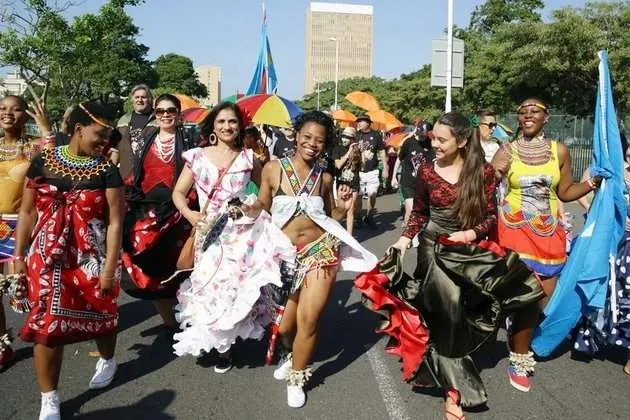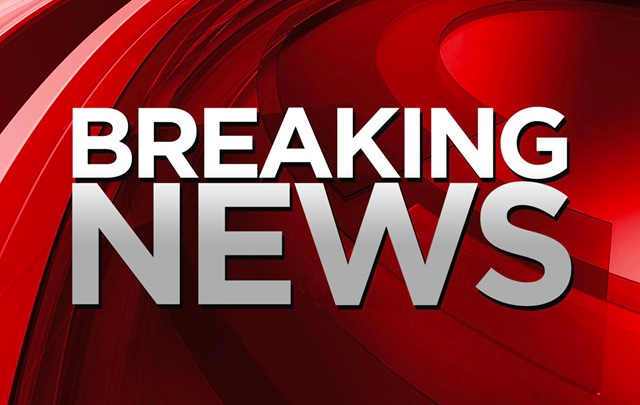Here is the reason Africa cant really be free

As the world marks Africa Day, the question remains why the continent is still being held back
Africa Day came into being on May 25, 1963, under the aegis of the Organization of African Unity (OAU), as a recognition of Africa’s diverse cultures, history, and collective struggles against colonialism, imperialism, and slavery. It is celebrated by Africans in Africa and the diaspora. In effect, this day is an occasion to reflect on Africa’s gains, challenges, inadequacies, and prospects. However, this is a celebration of which the African populace is not aware owing to their exclusion from governance due to pervasive elitism. Disdain for the people is part of the colonial legacy. Africa Day is hardly recognized except by a few African Union (AU – the successor to the OAU) member states.
It is imperative that Africans affirm themselves continuously. For a couple of years, I have witnessed Africa Day celebrations in institutions of learning in some African countries being reduced to showcasing traditional dances, cuisines, and dress forms (dashiki exhibitionism). It is also accompanied by expressions of narrow nationalism through flag waving. Romanticization of Africa and its cultures this way is deeply simplistic and evokes bigotry. A flag, a symbol of nationalism and militarism, is axiomatically divisive and destructive. Flags affirm meaningless colonial borders over which Africans bicker. Thus, Africans unconsciously and deliberately denigrate themselves and advance the colonial stratagem of divide and rule. They struggle with authenticity amidst pervasive mimicry. Therefore, Africa Day, rather than being an occasion for Africa to affirm itself, foregrounds Africa’s insecurities and anxieties. It is, therefore, an oddity.
In line with the spirit of Africa Day, the OAU spearheaded liberation against colonialism and white minority rule (apartheid) in South Africa. In the wake of South Africa’s democratic transition in 1994, the OAU had effectively run its full course. Although a worthy cause and mandate, it later became narrow and obsolete. There was a need to rethink regional integration efforts in Africa. Hence the birth of the AU in 2002 to cure inherent failures within the OAU and as a response to the changed global order following Western triumphalism.
The OAU’s enduring inefficiencies were cemented in its charter under the non-interference doctrine which rendered sovereignty absolute. It barred the OAU and individual member states from interfering in the internal affairs of other states. Consequently, tyrants committed gross human rights violations with impunity. While presiding over state repression in Uganda, Idi Amin headed the OAU in 1975 and Uganda was a member of the United Nations Commission on Human Rights from 1977 to 1979. It is illustrative of the depravity that afflicted the OAU and a continued lack of commitment to human rights by the AU and international community.
In the AU Charter, the retrogressive doctrine of non-interference has been replaced with the one of non-indifference that allows for intervention in the face of gross human rights violations such as war crimes, crimes against humanity and genocide. It means that sovereignty has been redefined as responsibility, but African rulers are still reluctant to call out peers committing atrocities against their people. The redefinition of sovereignty was informed by inaction during the genocide in Rwanda in 1994 and atrocities in the Balkans around the same time. In Rwanda, almost a million people were massacred in 100 days while Africa and the rest of the world stood by. Thus, the Responsibility to Protect (R2P) has become part of the rubric of conflict management even as its application is hamstrung by geopolitics, lack of political will and hypocrisy. Internationally, R2P evokes regime change accusations when carried out unilaterally as was the case in Iraq in 2003, when the United States invaded Iraq and toppled Saddam Hussein. The North Atlantic Treaty Organization (NATO) invasion of Libya in 2011, though sanctioned by the UN Security Council and multilateral, ousted Muammar Gaddafi who was subsequently murdered.
Africa Day is also about reflecting on education in Africa. From the AU website, the 2024 theme is “Educate an African fit for the 21st Century: Building resilient education systems for increased access to inclusive, lifelong, and relevant learning in Africa.” This theme is timely but aberrant. The centrality of education to Africa’s prosperity and standing cannot be overemphasized. I wonder, however, what is so special about the 21st century that could have excused lack of investment in mass education before to ensure inclusivity and social cohesion. The preparation of the so-called African fit for the 21st century should have started soon after independence. Education must be an ongoing process and not trivialized as a fad. Quality and inclusive education has been neglected while Africa’s elite talk flippantly about accelerated development, and technological advancement through the agenda 2063 blueprint.
It is of concern that after 60 years of independence, for some African countries, education remains colonial thus irrelevant to Africa’s peculiar needs. It thus worsens inequalities and poverty since properly equipped schools are beyond the reach of the majority of people. The irony is that education, which is supposed to reduce poverty and inequalities, accentuates these very problems, becoming a catalyst for conflicts and instability in Africa. Contempt for indigenous knowledge systems and valorization of foreign cultures is normative among Africa’s elite, who regard patronizing Western education systems and upholding Eurocentricity a marker of excellence and sophistication. This alienation is self-denigrating and poverty inducing.
Africa is yet to establish empowering education. Empowerment here refers to education that restores Africans’ self-confidence eroded by years of subjugation and humiliation under colonialism and imperialism. As such, Africa continues to struggle in manufacturing, trade, technology, and innovation since this borrowed education does not nurture critical thinking and most importantly is not anchored in Africa’s cultures and epistemologies. Thus, education in Africa reproduces an ontologically dislocated being only fit for mimicry.
Lack of emphasis on relevant education for Africa’s social, political, economic, cultural, and technological transformation accounts for a reductive interpretation of decolonization that equates it to flag independence and the exit of colonialists. There is a tendency to conflate replacement of colonialists with black people of a similar mentality with freedom and independence. Consciousness about decoloniality whereby colonialism persists culturally, symbolically, and institutionally is nonexistent. Africa’s problems stubbornly persist because Africa’s elite derives validation externally. African nation states derive their legitimacy externally too, not from the extent to which they serve their people through good governance. Western institutions of learning and entrenchment of alien ideologies, as prescribed by the West, confer approval on this elite. Alienation is culturally violent and damaging.
The decolonization project stalled after independence when the political elites, for self-serving reasons, pandered to foreign interests at the expense of the wellbeing of the populace. In the Sahel, for instance, such rulers and governments increasingly got detached from the people, became illegitimate and were eventually toppled. These coups were received by a groundswell of jubilation. In Mali, Burkina Faso, Niger, and Guinea, military juntas have effected revolutionary changes, including severing ties with the French, the colonial power, whose colonial instincts are hardly disguised. The military leaders have withdrawn from the Economic Community of West Africa States (ECOWAS), which they have dismissed as a French and Western lackey. In Senegal, elections held in 2024 ushered in a youthful government that is also opposed to longstanding French interference in the country and subregion. The resolve to detach from the cultural, economic, social, and political chokehold and build local economies for the betterment of the people is palpable within the Sahel and West African subregions. Although coups are not the panacea for the challenges bedeviling Africa, they show that democracy, to be relevant, must resonate with people’s aspirations and pressing needs.
Africa Day is also about Pan-Africanism. Africa’s elite wax lyrical about Pan-Africanism but propagate neocolonialism as agents of imperialism. These elites must live the ideals of Pan-Africanism – the foremost being commitment to advancing the cause of Africans on the continent and in the diaspora. Economic, political, and cultural emancipation is true liberation. Institutions of global governance such as the World Bank, and the International Monetary Fund (IMF) are flawed but have an outsized role in African economies, thus neoliberalism has exacerbated Africa’s poverty, inequalities, joblessness, and lack of investment in social welfare. Economic exclusion is a trigger of conflicts. In Kenya, for instance, President William Ruto’s government has abandoned its pro-poor manifesto on which he campaigned for election. He has embraced the Bretton Woods’ template and imposed numerous punitive taxes without commensurate public goods, and disinvested in education, healthcare, and social welfare generally. These taxes and high electricity tariffs have raised the cost of doing business. Ruto’s supporters in the poor and working class have been hard hit.
Under the AU, African rulers devised initiatives such as New Partnership for Africa’s Development (NEPAD) by which African countries could attract investment if they upheld good governance. NEPAD is embedded in paternalism, and it is curious that its architects missed its center-periphery framework. Moreover, NEPAD is built on antecedent development initiatives such as the Lagos Plan of Action (1980) and Abuja Treaty (1991). These initiatives have, however, not transformed Africa’s economies and people’s lives because they were stuck in the neoliberal template.
As an intergovernmental body, the AU precariously relies on external funding which places Africa’s destiny and security in the hands of external actors. Unsurprisingly, since the Rwandan genocide, similar horrors have occurred in Sudan’s Darfur region, and Tigray region in Ethiopia (incidentally the seat of the AU), to name but two cases.
Currently, a civil war is raging in Cameroon over differences in colonial heritage which is illustrative of the destruction of the lingering colonial legacy. Pitting the Anglophone and Francophone regions, this civil war was triggered when Francophone Cameroonian elite insisted on imposing the French culture on their compatriots who adopted the British heritage institutionally at independence. The AU has downplayed this conflict and so has the international community.
Sudan and eastern Democratic Republic of Congo (DRC) are theatres of violence too. Congo has been unstable since the 1990s and continues in bloodletting without an end in sight. The West and some of Congo’s neighbors such as Rwanda and Uganda are implicated in resource looting and related atrocities in one of the world’s enormously mineral-rich countries. Years of dictatorship and impunity in Sudan tipped over into civil war following the ouster of Omar al-Bashir in 2019. The AU pledged to silence guns in Africa by the year 2020 but the reality is that this aspiration is bound to remain a pipedream.
Africa is forging alternative partnerships with China in trade, investment, cultural exchanges and skills and knowledge sharing to counter Western hegemony. But without Africans, especially their elite, being clear about Africa’s interests, the shift towards China and other emerging powers will not change much regarding Africa’s status and fortunes.
Africa Day evokes much that Africa should reflect on. The questions of identity and leadership, however, must be resolved as a prerequisite to emancipation. Unless Africans take pride in themselves, mimicry will continue to be their default approach in multilateral relationships to their detriment. This will further undercut Africa’s agency and quest for true liberation.





